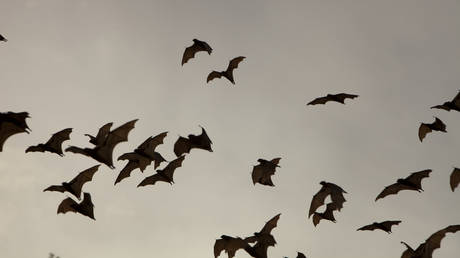
A study by researchers at the University of Cambridge has found that climate change played a key role in Covid-19 spreading from animals to humans, as the two groups were forced closer together as populations grow.
Scientists examined changes to temperature and rainfall over the last 100 years, specifically modelling bat populations against their habitat needs. They found that climate change had resulted in 40 species relocating during that time to areas in China, Laos and Myanmar. “Bats are the likely zoonotic origin of SARS-CoV-1 and SARS-CoV-2,” the study noted.
The university researchers outlined how this essentially created a Covid-19 “hotspot” in the area, with the bats carrying around 100 strains of the virus throughout the region.
“I find it difficult to see that this climate-driven increase in bats and bat-borne coronaviruses make something like [the pandemic]less likely to happen,” Robert Beyer, the study’s lead author and a zoology researcher at Cambridge, told AFP. However, he clarified that “Our paper is a long way away from saying the pandemic would not have happened without climate change.”
Even though the Covid-19 transmission link between humans and animals has not been fully laid out by scientists, Beyer said research indicates that species and humans being forced into closer contact has resulted in changes to the natural world. Citing habitat destruction and increased development of populated areas, he warned that humans are pushing “the pathogen in our direction.”
In response to its findings, the study, published in the Science of the Total Environment journal, called on governments around the world to address urban expansion, as this would help to reduce the risk of another global outbreak like Covid-19.
“To reduce the risk of future zoonotic spill-overs, it is crucial to introduce measures to protect natural habitats, impose strong regulations on wildlife hunting and trade, establish appropriate animal welfare standards on farms, markets and transport vehicles, and discourage high-zoonotic-risk dietary and medicinal customs, whilst accommodating the socio-economic needs that drive current patterns,” the study concludes.
The University of Hawaii’s Camilo Mora, who contributed to the study, said that “the fact that climate change can accelerate the transmission of wildlife pathogens to humans” should be treated by countries around the world as an urgent wake-up call to speed up their efforts in reducing harmful emissions.
Like this story? Share it with a friend!




